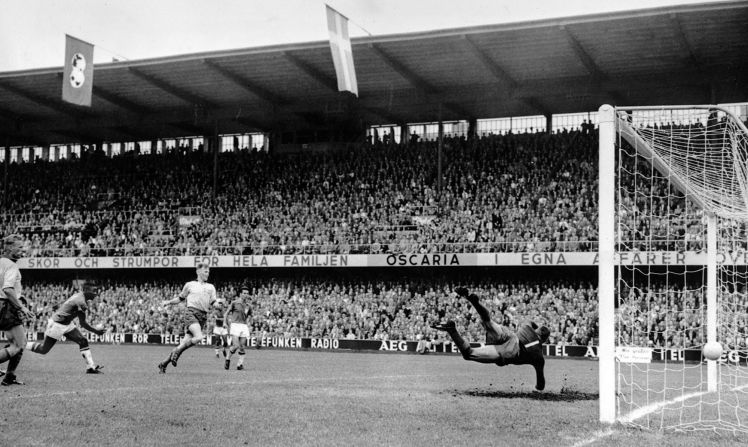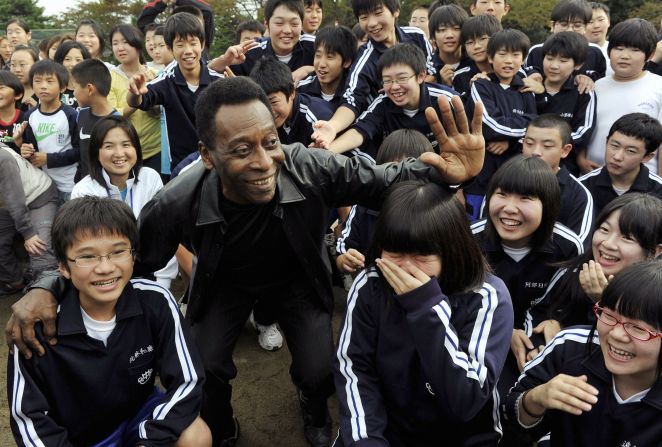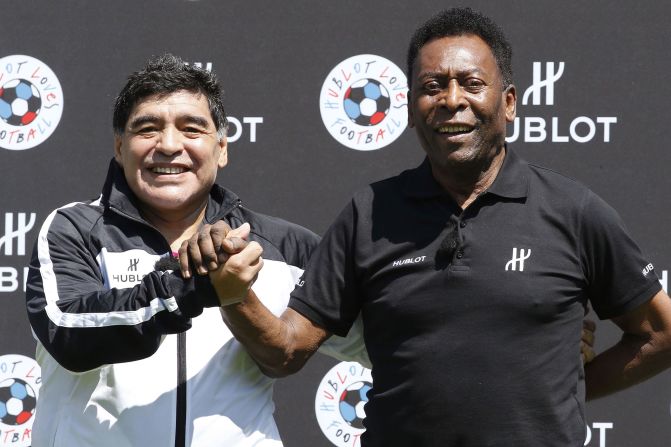Editor’s Note: Amy Bass is professor of sport studies at Manhattanville College and the author of “One Goal: A Coach, a Team, and the Game That Brought a Divided Town Together” and “Not the Triumph but the Struggle: The 1968 Olympics and the Making of the Black Athlete,” among other titles. The views expressed here are solely hers. Read more opinion on CNN.
It would be a shame if all that was left to say about Pelé was an assembly of clichéd phrases trying to summarize an unparalleled life, an unprecedented career.

But as news of his death at 82 began to spread throughout the world, it seemed as though there was nothing to write that hadn’t been written; nothing to say that hadn’t been said.
Just as Pelé — born Edson Arantes do Nascimento — never needed an introduction, he now needs no explanation, an athlete who transcended his sport and yet wore it on his sleeve; a Brazilian who transcended his country, and yet never left.
Growing up in poverty in Bauru, Pelé learned the game from his father, using a stuffed sock or a grapefruit as a ball. In 1958, at just 17 years old, he erupted on the international pitch, becoming the youngest to score in a FIFA World Cup match and, with victory over host Sweden in the final, he put Brazil on the global sports map – an international icon born.
Indeed, Pelé, observes historian Brenda Elsey in an essay about South American soccer, “transcended national identity to embody an image of Pan-African success,” perhaps especially when members of Santos FC toured Nigeria and Mozambique in the 1960s. “That the leaders of the Brazilian team also came from impoverished neighborhoods and difficult circumstances,” argues Elsey, “created solidarity with players across the Global South.”
While committed to country and team — he stayed with Brazil’s Santos FC for some 19 years, scoring 643 goals in 659 games (despite lucrative offers coming from the likes of Paris St. Germain and Real Madrid, and a scrapped deal from Inter Milan because of fan protests in Brazil) — he also existed as a singular figure, the greatest of all time with his unparalleled record of three World Cup championships (1958, 1962, 1970) and, according to Guinness World Records (and let’s be clear: his goal tally has always been up for debate, with friendlies and exhibitions thrown in), 1,279 goals in 1,363 matches.
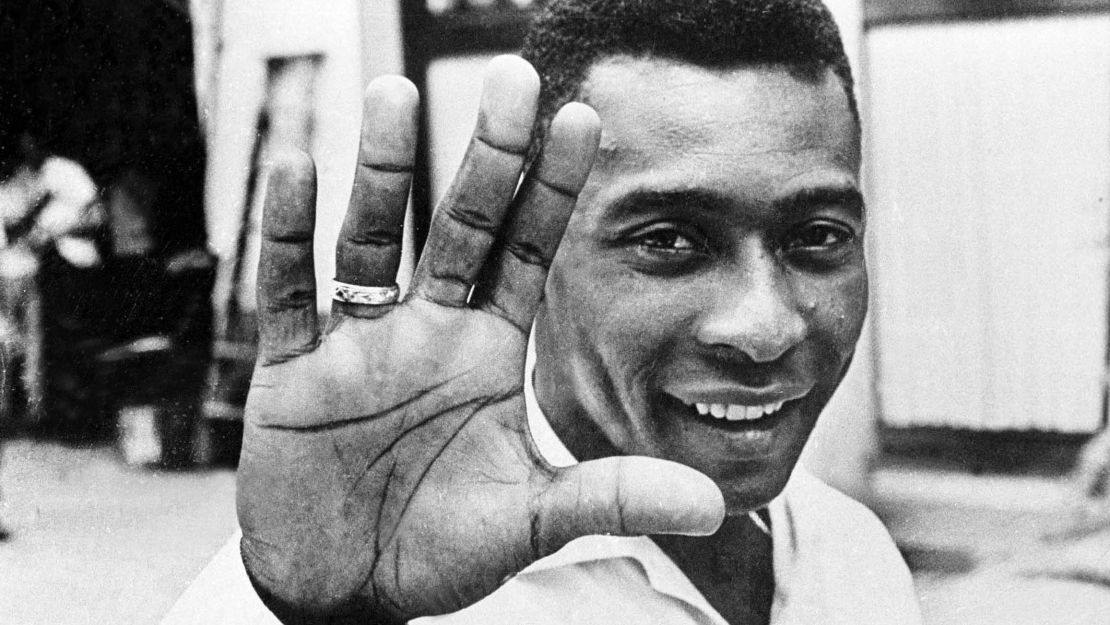
Rather than fully retire once his time with Santos and the national team was done, he brought his talents to New York, playing for the Cosmos from 1975 to 1977, his celebrity bringing new fans and huge crowds to North American Soccer League matches.
While the league eventually folded, Pelé’s impact on American culture before and after his time with the Cosmos, whether starring in Pepsi commercials or visiting the White House, giving Johnny Carson a soccer tutorial or starring alongside Sylvester Stallone in the 1981 film “Escape to Victory,” was solidified.
For all of this, and so much more, christening Pelé as the greatest of all time, the GOAT, has been a comfortable practice for far longer than anyone on the current US Men’s National Team has been alive (by a whole lot of years).
And yet, over the last several weeks, after the conclusion of what has to be considered one of the greatest soccer matches in history — as well as one of the greatest championship finals in any sport — some pundits and fans alike have crowned Lionel Messi as soccer’s definitive GOAT, with the likes of Cristiano Ronaldo, Diego Maradona, and, yes, Pelé, somewhat fading into the background.
With Pelé’s death, that transfer of power is on hold, at least for the moment, giving us time not only to remember soccer’s original international superstar, the rare iconic athlete whose moniker is synonymous with the game he played, but to think a bit about what it means to be the greatest.
At one point in sport, being “the goat” was nothing any athlete wanted — it meant someone who botched a catch, forgot to tag up or dropped the ball at the worst moment. Now, in all of its shouty all-caps glory, a GOAT is the best there is and, most importantly, ever was, sparking fierce debate around a cast of characters from different sports and different eras: Wayne Gretzky, Babe Ruth, LeBron James, Mariano Rivera, Abby Wambach, Michael Jordan, Serena Williams, Tiger Woods, Roger Federer, Allyson Felix, Michael Phelps, Babe Didrikson, Jack Nicklaus, Billie Jean King, Al Oerter, Margaret Court, Muhammad Ali, Simone Biles — and on and on and on.
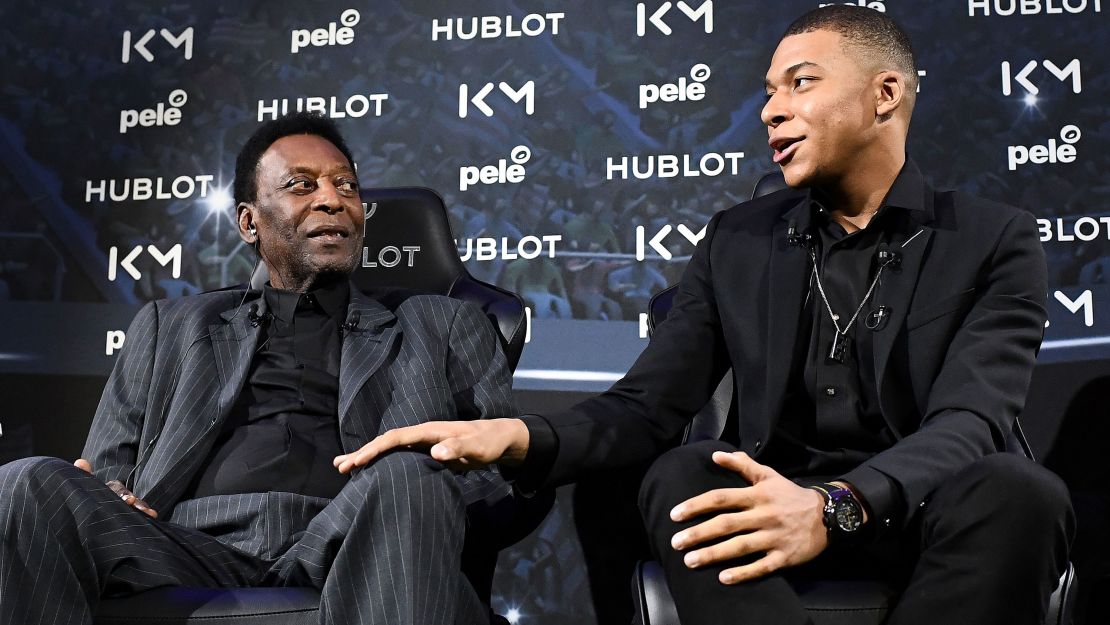
At one point, Ali, whose self-appointed nickname was actually “The Greatest,” owned the rights to “G.O.A.T., Inc.,” which his wife Lonnie created in 1992. Ali then sold it for some $50 million to entertainment firm CKX in 2006, which bought an 80% interest in Ali’s name and likeness.
But the criteria for GOAT is unclear, at best, with deliberations and arguments about what it means to be the greatest arising after a spectacular victory, a retirement, or, yes, a death. Is the GOAT the most decorated? The longest ranked at number one? Is it about stats? Brilliance? Creativity? The most titles over time? The most titles in a year? The most titles in one day? The biggest paycheck? The most endorsements?
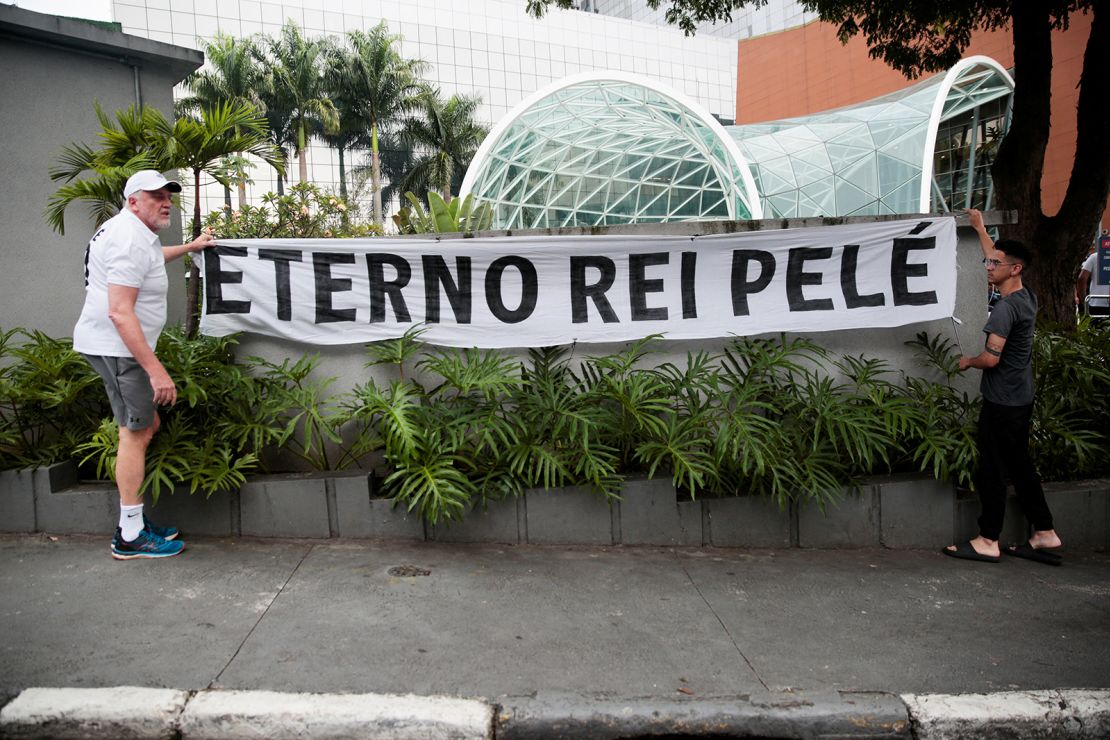
There are not, of course, any kind of actual, obvious, undeniable measures for the greatest of all time. Sports simply do not operate that way, especially when dealing with a figure such as Pelé, whose cultural and social impression is felt not just in soccer, but the world writ large. Yet while there might be no one way to delineate the greatest, conversations that ask, “Who is the GOAT?” might be as essential as they are absurd because of what they tell us about who we are and what we care about.
Any reference to Pelé as “one of the greatest” is “disrespectful,” tweeted soccer writer Fernando Kallás on Thursday. “If you don’t feel like referring to him as the GOAT, just stick to being sorry for his loss, talking about his accomplishments, bla bla bla. But don’t use his death to question his place as the GOAT.”
Indeed, amidst the current and former presidents of multiple countries, plus the celebrities and fans, posting grief-filled testimonials about the legend, it was Neymar, perhaps Pelé’s greatest Brazilian heir apparent, who best summarized the whys of Pelé’s GOAT status forever and always. “Before Pelé, ’10’ was just a number…football was just a sport,” he posted to Instagram. “He turned football into art, into entertainment. He gave a voice to the poor, to black people, and especially gave visibility to Brazil….He is gone, but his magic remains. Pelé is ETERNAL!!”
Perhaps that, then, is the best we can do to declare a GOAT: life after the game is over — life after the, well, life is over. But Pelé, we must remember, was never “just” the GOAT. He was, and always be will be, O Rei — the King.




